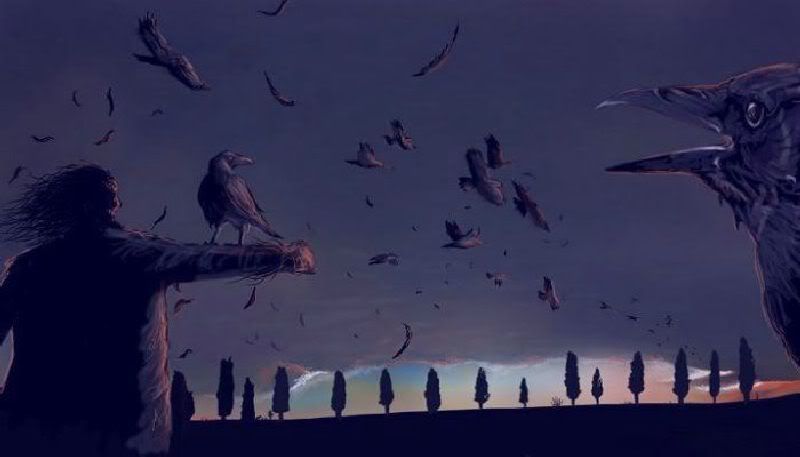(67) The Scrub Jays' imagination
Corvids may use memories of past experiences to plan ahead.
In the case of Western scrub jays, a previous study by Emery and Clayton suggests jays with past experience of pilfering food caches collected by other jays can then use this knowledge to protect their own caches.
Lab experiments showed that if a habitual thief was observed while burying its own cache, it would later go back and move it when no other bird was looking. Meanwhile, "innocent" jays did not exhibit the same cunning.
Imagination?
The researchers also argue that such behavior suggests Western scrub jays are able to second guess another's intentions, or, to put it another way, get into another bird's mind. In which case, this could be evidence for imagination.
Emery and Clayton write, "Western scrub jays may present a case for imagination because the jays needed to have remembered the previous relevant social context, used their own experience of having been a thief to predict the behavior of a pilferer, and determined the safest course of action to protect the caches from pilferage."
Studies to assess similar cognitive abilities in apes have been inconclusive, according to John Pearce, professor of psychology at Cardiff University in Wales.
"The Western scrub jay study is some of the best evidence going that one animal can understand what another is thinking," he added.
Pearce believes we can gain insights into the basic mechanisms of human intelligence through the study of animals. He says language is generally considered to be one of the major divisions between human and animal intelligence, which makes Western scrub jays especially noteworthy.
He said, "What's so interesting is that while Western scrub jays may not have language, the research shows they've got many of the intellectual abilities that humans have. This suggests that many of our intellectual abilities which we think we need language for perhaps we don't in fact need language for. That then makes us try to understand these abilities in a different way."
If we're as smart as we think we are, perhaps we need to keep an even closer eye on those clever old crows.
In the case of Western scrub jays, a previous study by Emery and Clayton suggests jays with past experience of pilfering food caches collected by other jays can then use this knowledge to protect their own caches.
Lab experiments showed that if a habitual thief was observed while burying its own cache, it would later go back and move it when no other bird was looking. Meanwhile, "innocent" jays did not exhibit the same cunning.
Imagination?
The researchers also argue that such behavior suggests Western scrub jays are able to second guess another's intentions, or, to put it another way, get into another bird's mind. In which case, this could be evidence for imagination.
Emery and Clayton write, "Western scrub jays may present a case for imagination because the jays needed to have remembered the previous relevant social context, used their own experience of having been a thief to predict the behavior of a pilferer, and determined the safest course of action to protect the caches from pilferage."
Studies to assess similar cognitive abilities in apes have been inconclusive, according to John Pearce, professor of psychology at Cardiff University in Wales.
"The Western scrub jay study is some of the best evidence going that one animal can understand what another is thinking," he added.
Pearce believes we can gain insights into the basic mechanisms of human intelligence through the study of animals. He says language is generally considered to be one of the major divisions between human and animal intelligence, which makes Western scrub jays especially noteworthy.
He said, "What's so interesting is that while Western scrub jays may not have language, the research shows they've got many of the intellectual abilities that humans have. This suggests that many of our intellectual abilities which we think we need language for perhaps we don't in fact need language for. That then makes us try to understand these abilities in a different way."
If we're as smart as we think we are, perhaps we need to keep an even closer eye on those clever old crows.

![[Go to Site Index]](http://i6.photobucket.com/albums/y225/Abramelinn/Banner_Crow4.jpg)

<< Home